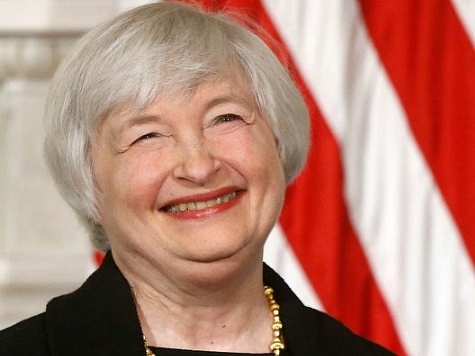World
Is The US Fed Batting For Hillary? Trump Thinks So, And Fed Policies Suck
- Trump was essentially hinting that when rates are actually raised, the markets could crash, creating a new downward pressure on the economy.
- Trump would gain from a crash, for a crash would be seen as a failure of Obamanomics.
- But Trump will have a mess on his hands if rates start being raised after (and if) he is elected, hence his sharp attack on the Fed.

Getty Images
One of the most significant things Donald Trump said in his presidential
debate yesterday (26 September) with Hillary Clinton was the US Fed’s flawed
interest rate policy. The Fed under Janet Yellen, said Trump, was “doing
political things” to keep rates low. He added: “When they raise rates, you’re
going to see some very bad things happen…”.
What Trump was essentially hinting at was that near zero-interest rates
were keeping asset prices up, “creating a big, fat, ugly bubble.” This means
when rates are actually raised, the markets could crash, creating a new
downward pressure on the economy. The US could tip into recession.
While the Fed has denied it is playing politics to create an artificial
sense of strong growth, it is worth understanding the politics of Trump’s
attack on the Fed, and the essential truth underlying it.
Trump is saying in coded language that Yellen is deliberately keeping
rates low, even though they could have been raised them at the last Fed meeting
on 20-21 September. This will help the Democratic candidate, who will obviously
pay a price if the markets crash or a recession looms. Trump would gain from a
crash, for a crash would be seen as a failure of
Obamanomics – something Trump has been railing against. Clinton can’t afford a
declining economy to tilt the balance against her in a close race.
But there is sound economic argument to Trump’s attack too.
In recent weeks, many bankers have begun criticising zero interest
rates, both in the US and Europe. In the US, Jamie Dimon, CEO of JP Morgan,
urged the Fed to raise rates for they have been kept too low for too long. He
is quoted by Bloomberg as saying: “The Fed has to maintain credibility. I think
it’s time to raise rates. Normality is a good thing, not a bad thing. The
return to normal is a good thing.”
In Europe, Deutsche Bank CEO John Cryan said last month that “monetary
policy is now running counter to the aims of strengthening the economy and
making the European banking system safer.” He warned of “fatal consequences“ for
savers and pensions plans.
It is difficult to see how banks can make money on zero or negative
interest rates, when savers lose out on earnings and borrowers shy away from
investing due to a weak economy.
But barring a single rate hike by the Fed earlier this year, no central
bank - including the European Central Bank and the Bank of Japan – has dared to
bring rates to clearly positive territory due to fears of pushing their
economies into recession. With the cost of money near zero, only speculators
have benefited, since zero-cost money has gone into assets like stocks. Wall
Street buccaneering ways caused the crash of 2008; but Wall Street is also the
greatest beneficiary of that crash which pushed rates so law that only speculators
can benefit from cheap money.
Many economists have questioned the wisdom of keeping rates so low when the
policy has not yielded significant benefits in terms of higher growth or achieved
targeted inflation rate. What was useful to stave off a depression in 2008 has
now become a curse for savers.
Trump will have a mess on his hands if rates start being raised after (and
if) he is elected; hence his sharp attack on the Fed. If a crash has to happen,
it would help him if it happens before the November election. But he is right
on fundamentals too.
Support Swarajya's 50 Ground Reports Project & Sponsor A Story
Every general election Swarajya does a 50 ground reports project.
Aimed only at serious readers and those who appreciate the nuances of political undercurrents, the project provides a sense of India's electoral landscape. As you know, these reports are produced after considerable investment of travel, time and effort on the ground.
This time too we've kicked off the project in style and have covered over 30 constituencies already. If you're someone who appreciates such work and have enjoyed our coverage please consider sponsoring a ground report for just Rs 2999 to Rs 19,999 - it goes a long way in helping us produce more quality reportage.
You can also back this project by becoming a subscriber for as little as Rs 999 - so do click on this links and choose a plan that suits you and back us.
Click below to contribute.
Latest